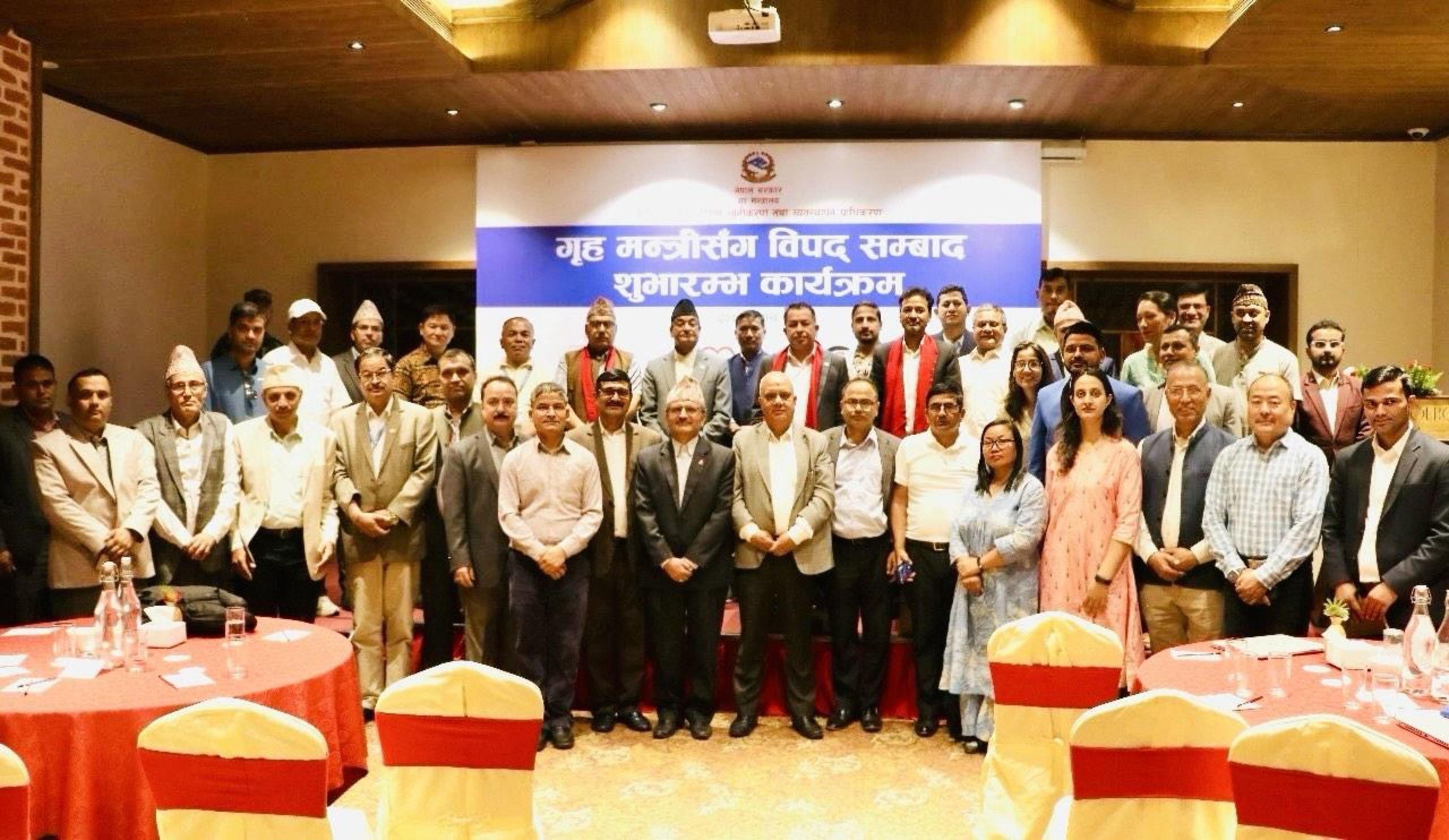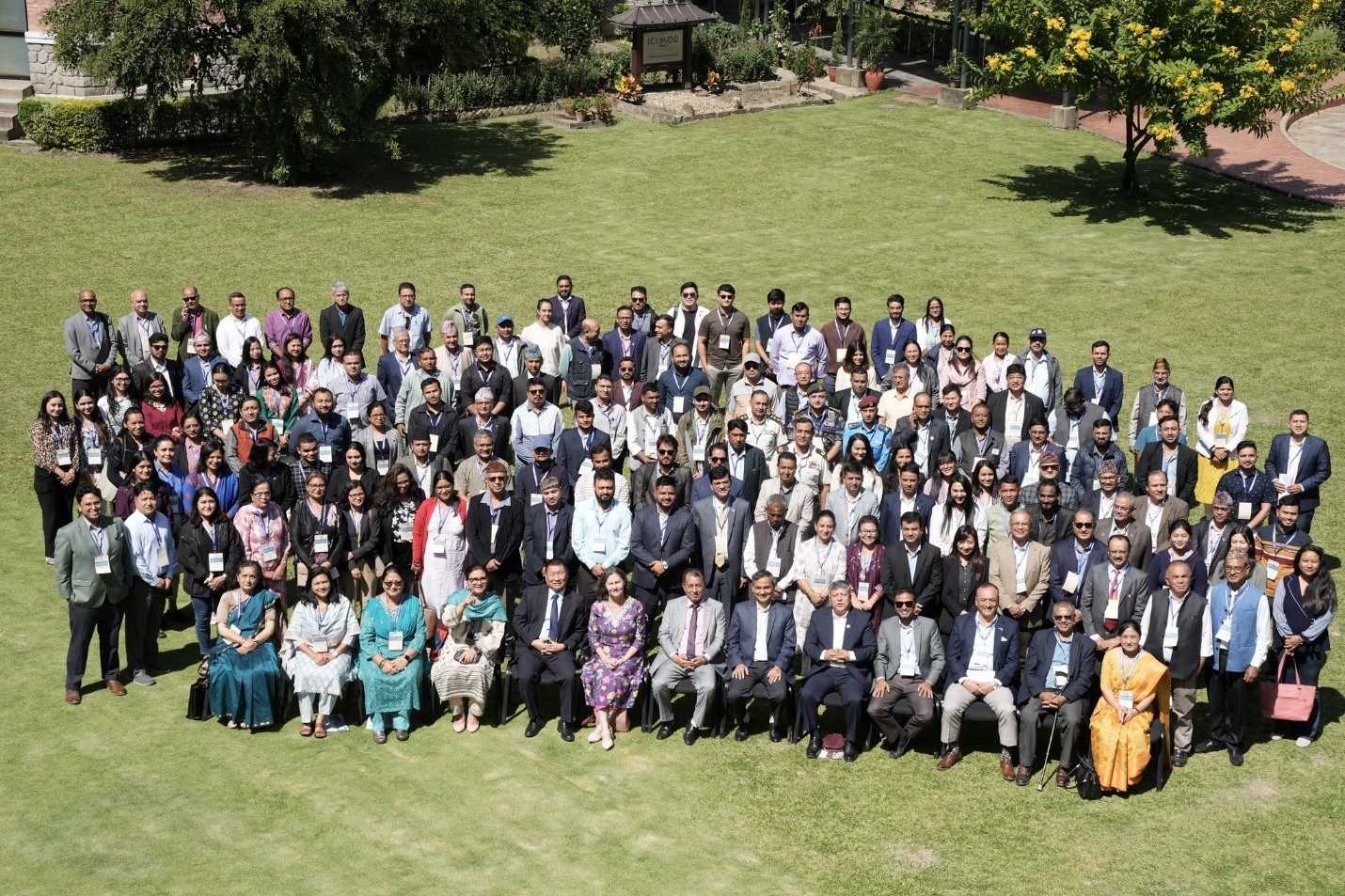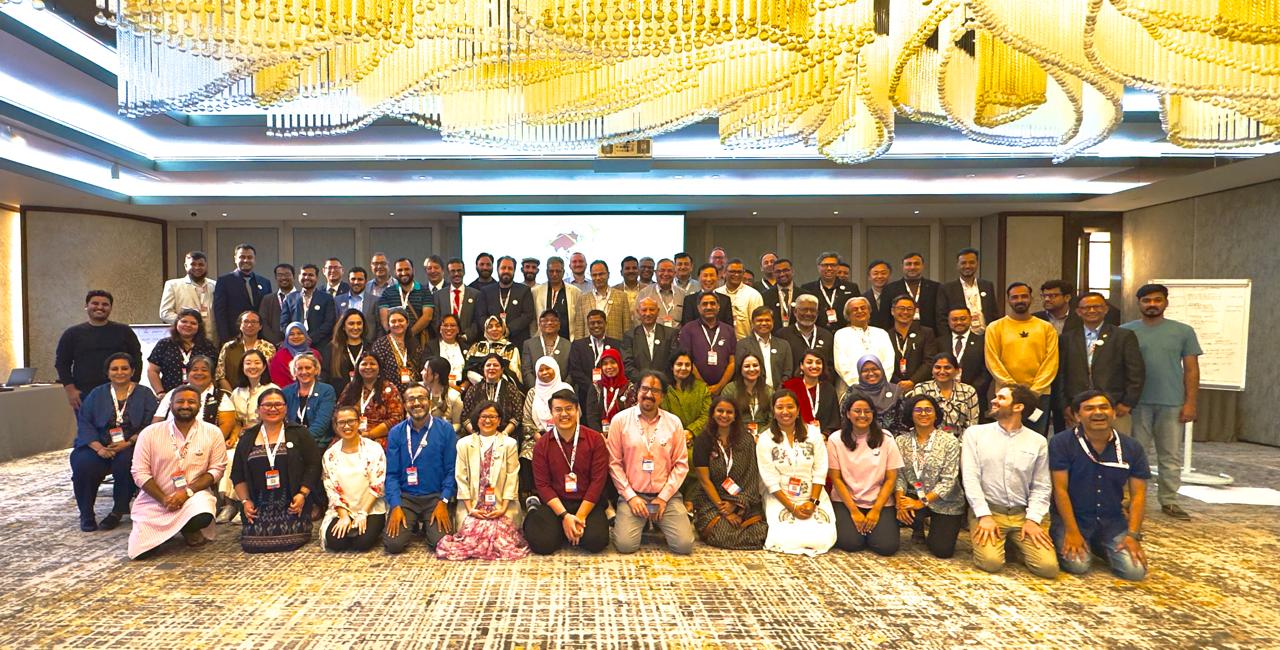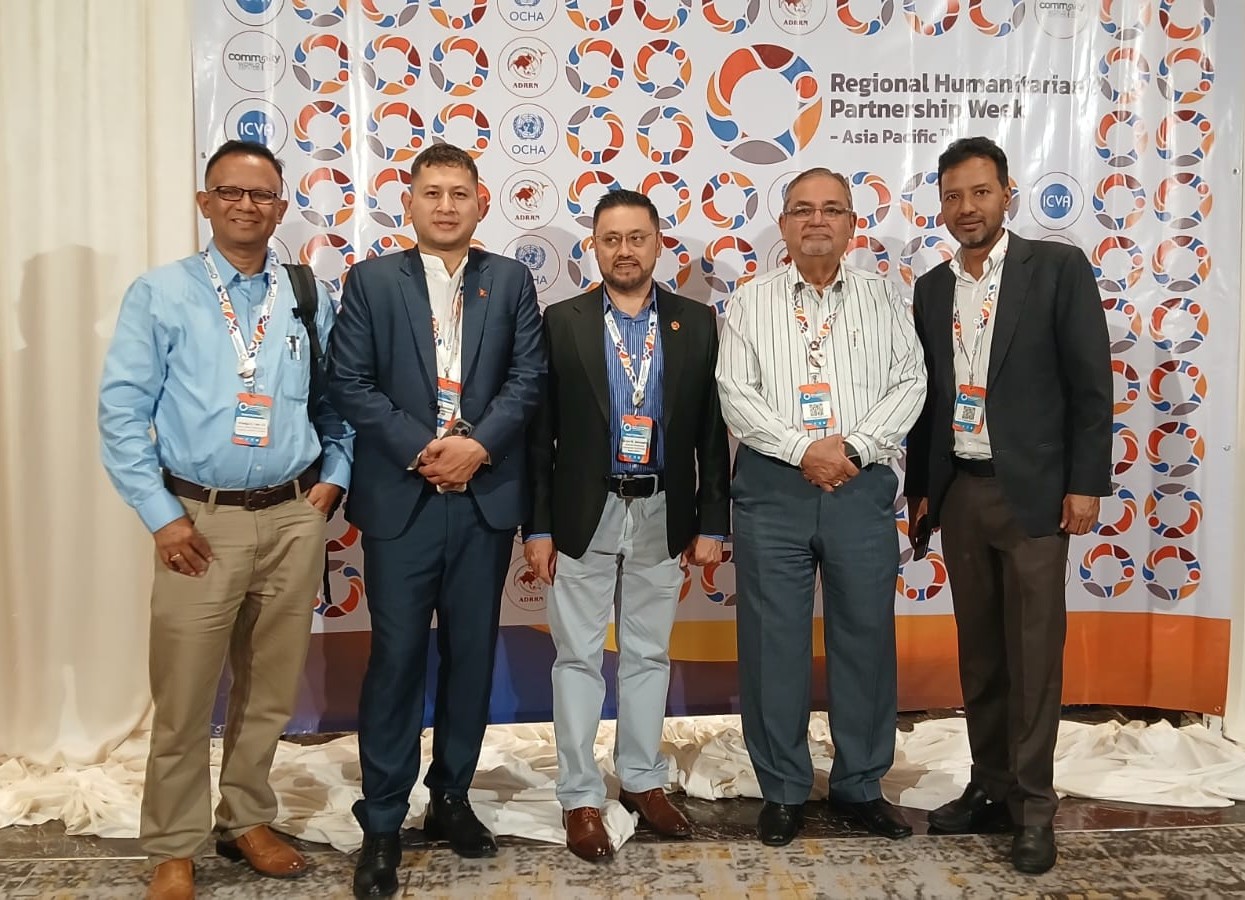Nepal’s Disaster Management Takes a Step Forward with New Monthly Dialogue Commitment

Kathmandu, 27 April 2025 – The NDRRMA hosted a half-day “DRR Dialogue with the Home Minister” in collaboration with DPNet-Nepal, supported by AWO International and Aktion Deutschland Hilft. The event brought together 61 representatives from government insititution, security forces, UN agencies, NGOs, academia, private sector, and the media to discuss strengthening disaster management in Nepal.
Opening the event, Suraj Gautam, General Secretary of DPNet-Nepal, reflected on the lessons from the 2015 Gorkha earthquake and listed recent climate-induced disasters like last September’s floods, the Dodhara-Chandani cloudburst, and the Thame glacial-lake outburst. He emphasized that these events exposed serious gaps in early warning systems, disaster risk financing, and coordination among agencies. He pointed out that these weaknesses could be fixed if the right institutions worked together, and he encouraged everyone present to focus on practical solutions.
Following Mr. Gautam, Shakti Gurung, Vice-Chair of DPNet-Nepal, warmly welcomed all the participants on behalf of the civil society sector. She thanked AWO & ADH for supporting the event, making it possible to gather in person in Kathmandu rather than online. Shakti emphasized that disaster risk management efforts in Nepal often end up being scattered conversations without concrete actions. She urged participants to focus on providing clear, solution-oriented recommendations that could be implemented before the upcoming monsoon season.
Mr. Surya Bahadur Thapa, Immediate Past Chair of DPNet-Nepal and the main architect of the dialogue series, then outlined the purpose of the program. He explained that while NGOs, academia, and technical experts are doing important work, they often operate separately, and the Ministry of Home Affairs, which leads disaster response, usually receives delayed or fragmented information. He highlighted that the goal of the dialogue was to directly connect ground-level realities and expert advice with the Home Minister so that quick and timely decisions could be made. He also strongly recommended that the dialogue become a regular event held every month.
Setting the stage for open discussion, Dr. Raju Thapa, Chair of DPNet-Nepal and Member Secretary of the National Platform for Disaster Risk Reduction, invited participants to share suggestions focused mainly on pre-monsoon preparedness. He encouraged everyone to propose actions that could be implemented immediately, preferably without needing new laws or large budgets. His clear message was: focus on solutions, not just problems.
During the open floor discussion, participants raised a wide range of important issues. Some spoke about the rising risks from pre-monsoon hazards like heatwaves, thunderstorms, and lightning. Others stressed the urgent need for better forest fire management and stronger early warning systems. There were also calls to use indigenous knowledge, such as traditional drainage and slope management techniques, which have proven effective in some rural areas. Speakers also highlighted the importance of completing the guidelines that define disaster roles and responsibilities across federal, provincial, and local levels, and ensuring local governments are empowered and well-supported.
When the Hon Home Minister Ramesh Lekhak took the floor, he praised the quality and seriousness of the recommendations shared during the dialogue. He stated that he was highly impressed by the range of ideas and solutions presented. The Home Minister announced that this dialogue series will now be held every month to maintain momentum and ensure regular feedback. He instructed NDRRMA to carefully document all the recommendations discussed and report back on the progress made during the next dialogue session. Importantly, he made it clear that NDRRMA’s performance would be evaluated based on how quickly and effectively these recommendations are addressed.
The Home Minister also encouraged better use of low-cost technologies like early warning systems and suggested including direct phone alerts along with SMS to make sure warnings reach the people on time. He expressed support for using innovations such as location coding systems to speed up disaster rescue efforts. Furthermore, he emphasized the need to strengthen local governments, calling them the "first responders" during any disaster. He mentioned that while the federal government should focus on making policies and strategies, local and provincial governments must be empowered to act quickly during emergencies.
In response, Mr. Dinesh Bhatta, Chief Executive of NDRRMA, welcomed the Home Minister’s guidance and committed to taking swift action. He promised that the upcoming Monsoon Preparedness Plan would be concise and practical, helping local governments take early actions. He also mentioned that discussions were underway with technology providers like Google to enhance earthquake early warning systems in Nepal. Dinesh shared that steps were already being taken to hand over humanitarian staging areas to provincial governments and that more warehouses would be established at the local level to improve emergency response.
The event concluded with a strong sense of determination. Participants agreed that first dialogue was not just another meeting but a real opportunity to build a stronger, more coordinated disaster management system in Nepal. The commitment from the Home Minister to hold monthly follow-ups, backed by clear actions from NDRRMA, gave hope that many of the problems highlighted would now begin to see real progress.











